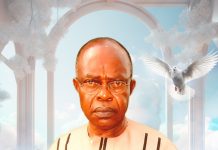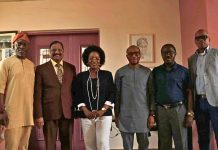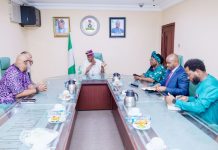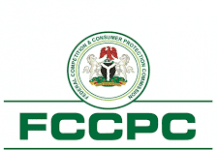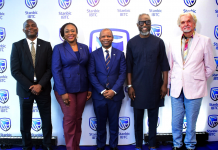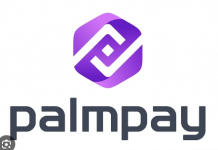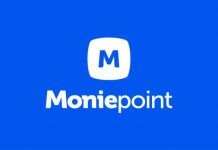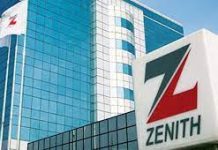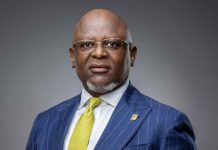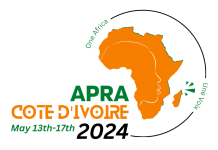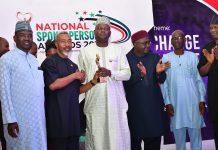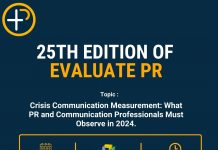GODDIE OFOSE
For Mr. Lekan Lawal, chief executive officer of M778, the impact of the Twitter ban in the advertising space is astounding. According to Digital 2021 Nigeria – an infographic report by We are Social Ltd and Hootsuite INC, over 3.05 million potential audiences can be reached by Twitter with adverts.
In January, Nigeria experienced a +17.3% quarter-on-quarter change in Twitter advertising reach and with over 40 millions Nigerian users (people and businesses), one can only imagine the loss and grave hit the advertising industry in Nigeria will suffer if this persists, said Lawal, a renowned adman.
The stakeholders within the imc ecosystem in Nigeria have queued behind this exertion, therefore, expressed dismay over the persistent government position on ban of Twitter.
FG had explained that it had no option but to end Twitter exploit in the country over Twitter alleged inglorious role during the #ENDSAR protest as well as it role in fueling secessionist agenda in the country.
Despite international and domestic outcries over this decision, the Muhammadu Buhari’s administration has stuck to its guns, while seeking negotiation with the micro-blogging company. However, Nigeria’s Cultural Minister, Lai Mohammed stated that the ban will be lifted once Twitter submits to local licensing, registration and condition.
“It will be licenced by the broadcasting commission, and must agree not to allow its platform to be used by those who are promoting activities that are inimical to the corporate existence of Nigeria,” Mohammed stated in one of the press conferences,” Muhammed said.
The local licensing has been the straw both federal government and Twitter have been hanging on.
Mr. Emmanuel Ayoola, Activism and Growth, Amnesty International Nigeria, who claimed that the right to freedom of expression is under attack in Nigeria stated that these actions are clear violations of citizens’ rights to freedom of expression, access to information, and press freedom.
“But we can make a difference by calling on the Nigerian authorities to reverse this ban and reinstate Twitter in Nigeria again, an important space for civic debate and participation.”
The impact of Twitter ban cannot be underestimated. According to the NetBlock Cost of Shutdown Tool, Nigeria lost over N2 Billion naira in 24hours and ₦90 Million every hour. This estimation by cost considered the economic impact of an Internet disruption, mobile data blackout or app disruption using indicators from World Bank, ITU, Eurostat and US Census.
Going by this estimation, families will suffer unimaginable economic impact in the coming weeks and months if this persists, managing director of M778 Limited, Lawal said.
He added that coming at such a time where the prices of staples are unreachable for the common masses, Nigerians should brace up for an even direr living situation. It doesn’t look good at all,” he said,
Reacting to the ban, the former chairman of Advertising Practitioners Council of Nigeria, (APCON), Mr. Lolu Akinwunmi said that the ban will affect the media bookings and projections. Look, every popular media channel, what it means is that while the ban is on, media cannot be an advertising platform.
On how much the economy is likely to lose as a result of the Twitter ban, Akinwunmi said that, “Hard to say. I don’t have the information. But it must be substantial. Some said about N2billion.”
The ban has generated mixed reactions since it took place on June 5, 2021. For the managing director of USP Brand management, Mr. Muyiwa Kayode, advertisers will move their campaigns from Twitter to other available platforms like FB and IG. Most using Twitter is already using these already anyway.
“I don’t see any significant losses for the reason given in above. Since only what is implemented is paid for, I don’t think there’s a ‘crisis’ between the three parties. I utilized budget is either channeled to other platforms or not depending on what the client wants.”
Meanwhile, Dayo Adefila, a digital marketing professional said that the effects are multidimensional and faily straight forward.firstly, impact on access to information on the platform is gone. From a market’s point of view, this means millions of people who normally see brand content directed at Nigeria based audiences, such as advertising and engagement posts, will no longer be able to see such content.
Secondly, the speed of the ban also meant rapid response by marketing teams and their agencies to unconditionally stop all activities regardless of what they were doing- running a Twitter promotion, solving customer service issues etc.
The swift response is expected because the ban came from the Federal Government. Businesses that use Twitter have to exclude.
According to Mr. Adefila, the third impact of the ban from a markets perspective is that it further affirms the need for brands to have clear customer data acquisition and enhancement strategies that are direct from the customer and not via second or third party platforms.
“This kind of direct customer information is called first party data. It can be got from information provided legally via a brand website, social media pages, SMS or USSD promotions, events and more. Typically, brands have relied on second party data from platforms like Twitter and Facebook like Ad Exchanges that give varied degrees of information”.
Responding to financial loss due to the ban, the digital marketing professional revealed that if looked at purely from a direct financial angle, again as a marketer, then the cost is potentially significant. Brands advertising directly via Twitter as platform or via contracted individuals, called influencers, spend tens of millions daily to reach their audiences via Twitter.
As a result of the Twitter ban by the Nigerian government, Netblogs offered an estimated cost of the ban for the first two days to be $268, 503, 309 (N97, 192,827,701).
Weighing into the issue, Mr. Ken Egbas, managing director of The SERAS Africa/TruContact Communications believed that the decision is a watershed moment in the communications industry in Nigeria when we look at Nigeria as a democratic country.
“The right to free speech is a key indicator of every Democratic society. My fear is that the federal government decision to ban use of Twitter in Nigeria sends a bad signal to the rest of the developed world and even potential investors that we are an unstable society where decisions can be taken by fiat without warning or due process or based on the whims and caprices of one individual in this case who may have been badly advised,” he said.
The ban must have significantly damaged our ratings globally as an investment destination. Before now, a lot of Nigerians were shocked at the decision of Twitter, a company worth nearly $70 billion, to set up its Africa headquarters in Ghana and to invest $250 million in the Ghanaian economy in the process. Well, Twitter must be feeling justified now, Egbas said. “You can rest assured that many others who were wondering at the wisdom behind their decisions would indeed now look past Nigeria and focus more on other parts of Africa.”
On the communications front, as it affects the advertising and PR industry, I am afraid that this move by the Nigerian government could serve as the unusual moment where we come face to face with the State censuring free speech, creative messaging, public conversations as long as it what is said is found adverse or contrary to the views the government would instead prefer projected.
It is like we are back under a military regime. What this portends for us as Nigerians on every front is grave. I believe there would have been more constructive ways that the Nigerian government could have engaged Twitter that would have yielded better outcomes.
In Europe, recently, we saw the sports community engage Twitter on eliminating cyber bullying and racism. This campaign is still ongoing. In America, we saw the same company trying to come to grips with how their platform may have unwittingly empowered the far right in the bid to discredit the current electoral process to saw the ousting of Donald Trump from power and the suspension of the American President Twitter account for promoting strife before and after the US elections.
So, I wonder why the handlers of the Nigerian President would believe the boss you beyond censure. They forget that before you open an account on these social media platforms, there are terms and conditions you must agree to mandatorily, he added.
The former President of Association of Advertising Agencies of Nigeria, Mr Kelechi Nwosu believed that the ban will certainly affect the opportunity to reach people via Twitter, of particular interest, is the revenue from Influencers who are promoting brands and ideas.
On how the crisis should be resolved, Mr. Lawal said, “The cost of advertising can either be preserved, or borne by all. In my own opinion, I think brands should simply preserve their spends. Digital advertising spend is more controllable than others, so it shouldn’t be an issue. Also, traditionally, Nigerian brands to be specific do not over rely on twitter to ply their trade. The role of twitter is for social discourse more than others.”












